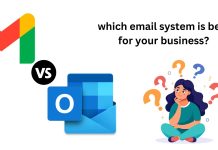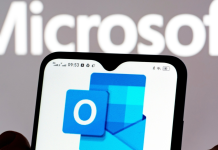Table of Contents
What’s Happening with Microsoft and AI?

Microsoft, one of the biggest tech companies in the world, is famous for making software like Windows, Word, and Teams. It also works on Artificial Intelligence (AI), a type of technology that helps computers learn and solve problems just like humans. But recently, Microsoft faced some serious allegations. People claimed that the company was using user data to teach its AI systems without asking for permission. This has sparked debates about whether companies do enough to protect our personal information.
Understanding why this is a big deal means learning a little about AI and why user data is important. Let’s break it down.
Microsoft and AI: What Is AI and How Does Microsoft Use It?
AI, or Artificial Intelligence, is like giving a brain to a computer. It helps machines do tasks like recognizing your face in photos, suggesting songs you might like, or even chatting with you as virtual assistants like Alexa or Cortana. To become smarter, AI systems need to learn from data—lots and lots of data!
Big companies like Microsoft gather data from their users to improve their AI products. For example, your typing habits might help make better autocorrect features or chatbots like ChatGPT. This sounds helpful, right? But there’s a catch: what if companies use your data without telling you?
The Allegation: Did Microsoft Use User Data Without Permission?
Here’s what happened. Some people accused Microsoft of using data from its users to train AI systems without being completely transparent about it. This means Microsoft might have taken things like emails, chats, or documents shared on its platforms and used them to teach their AI tools—without users fully knowing or agreeing.
To make this easy to understand, imagine a friend borrowing your notebook to study without telling you. It might feel unfair, even if it helps them learn. This situation raises questions like: should companies tell users exactly how their data is used? And should users have the option to say no?
Microsoft’s Response: What Did the Company Say?
When Microsoft heard about these claims, they quickly responded. They denied doing anything wrong and explained their practices in detail. Here’s what they said:
- Clear Policies: Microsoft stated that it already has rules about how it handles user data. It claimed to prioritize transparency and protect user privacy.
- User Consent: They emphasized that they ask for user consent before using any data for AI training. For example, if you agree to terms of service, it might include how your data could be used.
- Continuous Improvement: Microsoft shared that they are working on improving how they communicate with users about data usage.
While Microsoft’s response aimed to reassure people, it also showed how important it is for companies to clearly explain their policies and gain users’ trust.
Why Data Privacy Matters: What Happens When Data Isn’t Protected?
Data privacy is like locking your diary. It’s about keeping personal information safe and only sharing it with permission. If your data isn’t protected, bad things can happen:
- Identity Theft: Hackers could steal your information, like passwords or credit card numbers, and pretend to be you.
- Unwanted Ads: Your data could be sold to advertisers, leading to spammy and annoying ads.
- Loss of Trust: People might stop using apps or services if they feel their data isn’t safe.
For companies, protecting data isn’t just about avoiding trouble—it’s about respecting their users.
New Information: What Else Should We Know?
Here are two important facts about AI and data privacy that you might not have heard before:
- AI Can Learn Without Personal Data: There’s a federated learning method where AI systems are trained on user data without it leaving your device. This way, the data stays private, and the AI still improves.
- Stronger Laws Are Coming: Governments around the world are introducing stricter data privacy laws. For example, the European Union has the GDPR (General Data Protection Regulation), which ensures companies must ask for permission before using anyone’s data.
How to Protect Your Data: Tips for Staying Safe Online
How can you keep your own data safe? Here are some simple tips:
- Read the Terms: Before signing up for a service, skim the privacy policy to understand how your data will be used.
- Use Strong Passwords: Make passwords that are hard to guess and different for every account.
- Enable Two-Factor Authentication (2FA): This adds an extra layer of security when logging into accounts.
- Turn Off Data Sharing: Many apps and websites let you decide whether to share your data. Check the settings and turn off anything unnecessary.
- Update Regularly: Keep your devices and apps updated to protect them from hackers.
Conclusion: Why This Matters to All of Us
The allegations against Microsoft remind us how important data privacy is in today’s digital world. While Microsoft has denied the claims and assured users of its safety measures, the issue highlights a bigger question: are tech companies doing enough to protect our data?
As users, we have the power to stay informed and take steps to protect our personal information. At the same time, companies must take responsibility for being transparent and building trust. After all, in a world where AI and data are so interconnected, privacy isn’t just important—it’s a right.



































